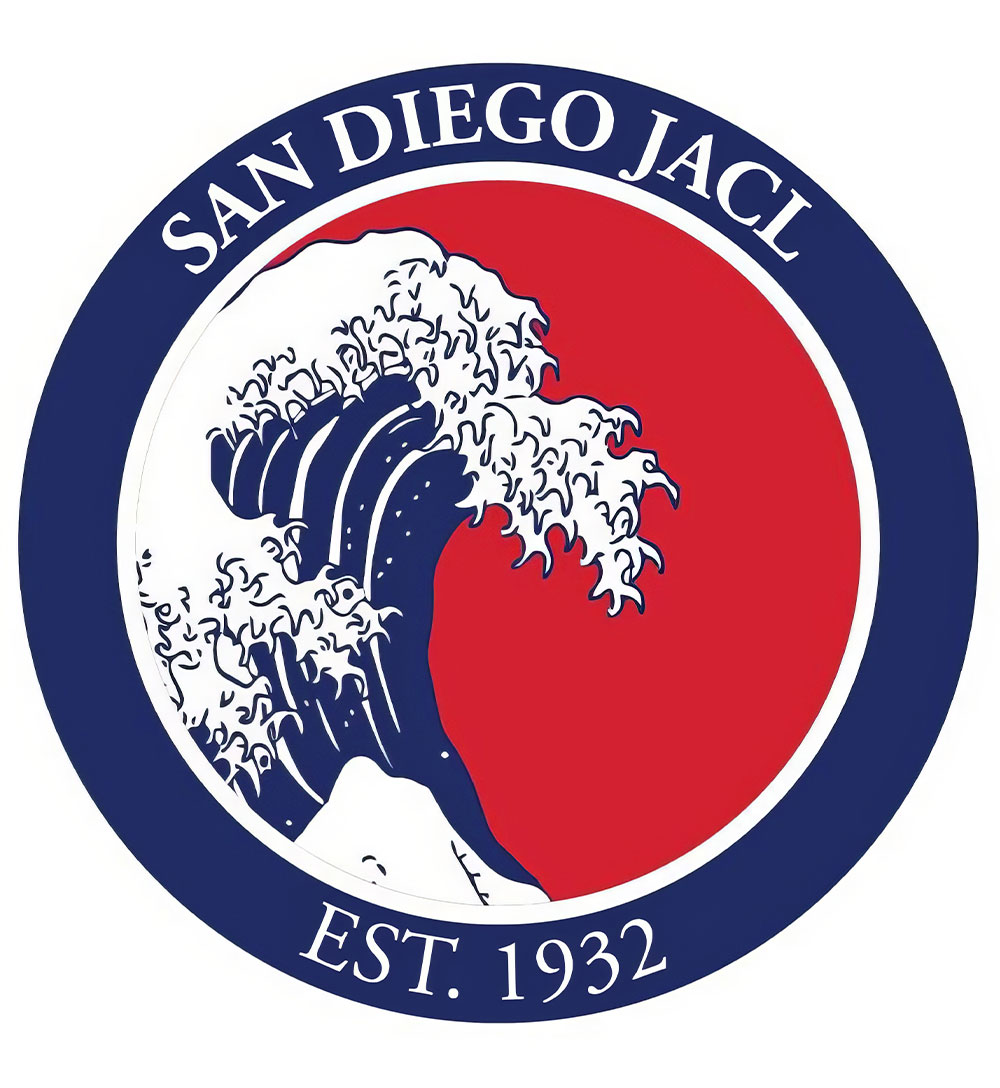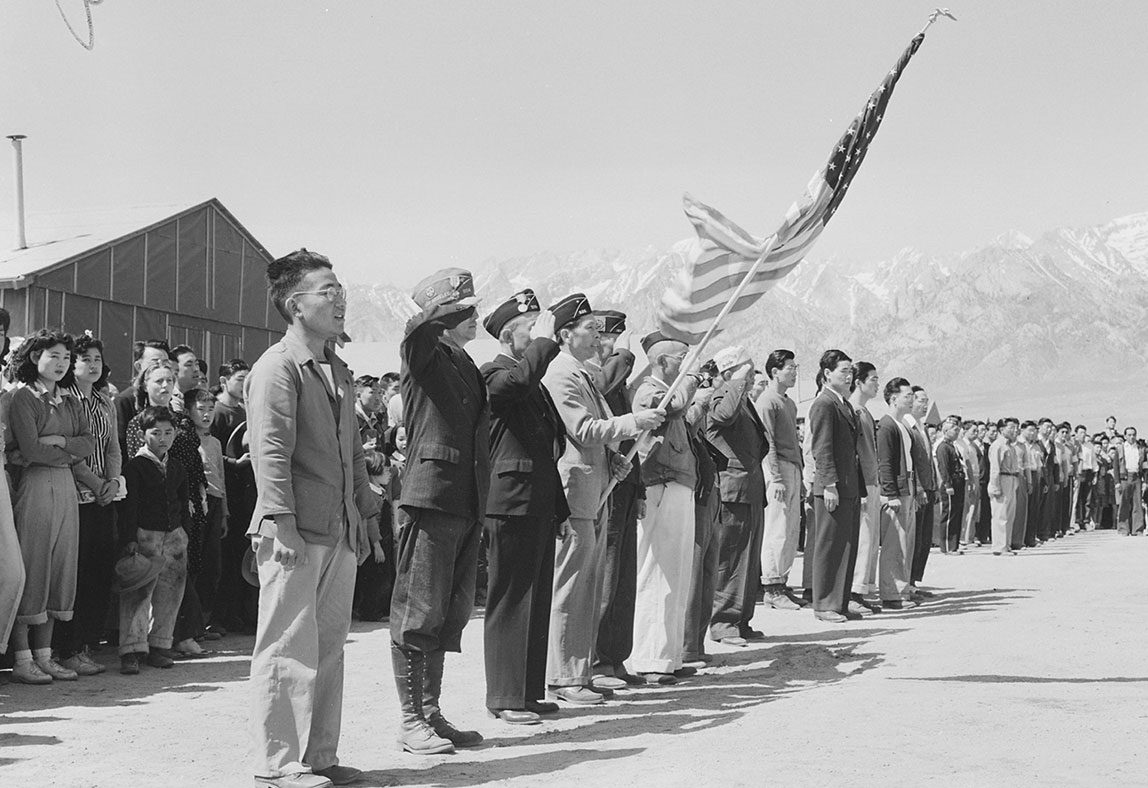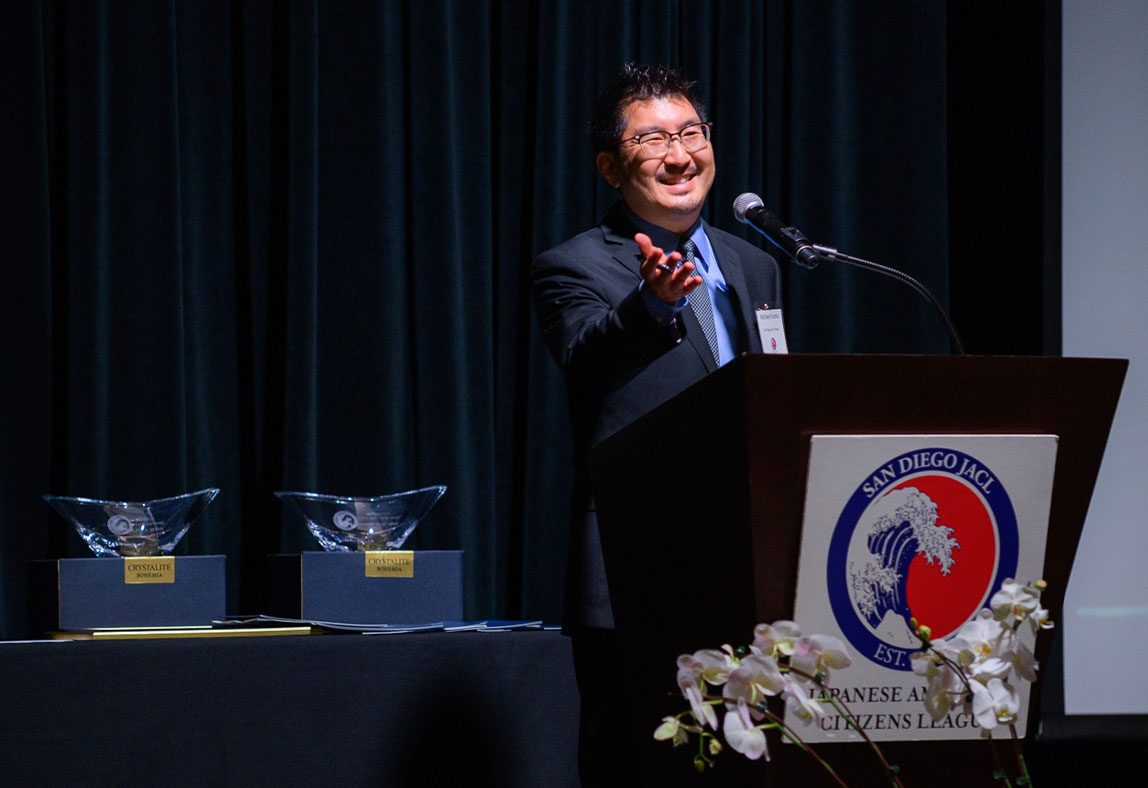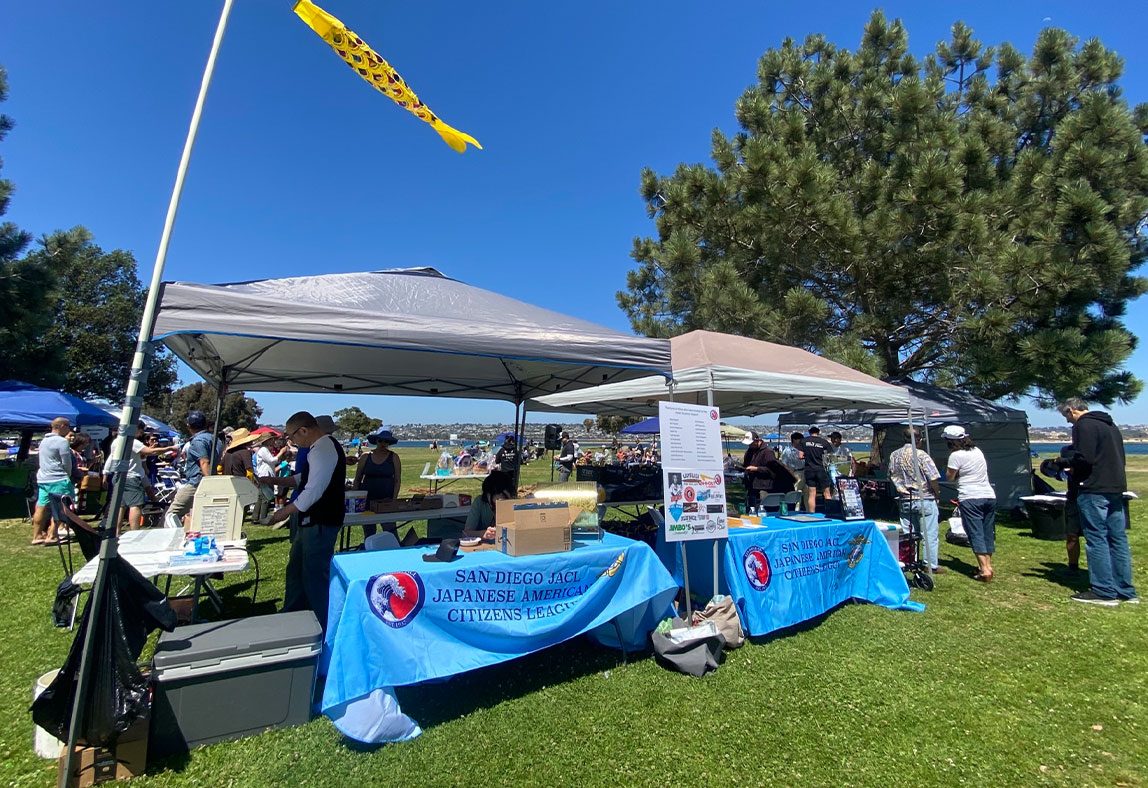
San Diego Japanese American Citizens League
Founded in 1929, the JACL is the oldest and largest Asian American civil rights organization in the United States. The San Diego Chapter was established shortly thereafter in 1932. The JACL monitors and responds to issues that enhance or threaten the civil and human rights of all Americans and implements strategies to effect positive social change, particularly with respect to the Asian Pacific American community.
History
The National Japanese American Citizens League (JACL) was founded in 1929 when Japanese American groups from Seattle, Washington, Portland, Oregon, and Placer County, San Francisco, Fresno, Los Angeles, and Brawley, California, banded together to form a national civil and human rights organization.
With the urging of National JACL, the San Diego Chapter was informally organized in late 1932. In the Summer of 1933, the Chapter applied to National JACL and received official recognition. The first general meeting of the San Diego JACL was on October 10, 1933.
This meeting and most of the early meetings were held at the old Buddhist Temple at 6th & Market Street in San Diego, in an area which was then San Diego’s “Nihon-machi” (i.e., Japan Town). Though Hanako Moriyama was the organization’s provisional President during its establishment, George Obayashi was elected its first official President in 1933.
The San Diego Chapter quickly got to work protecting the rights of our community. In 1934, the Chapter worked diligently in successfully defending the rights of California’s Issei to fish commercially.
In 1937, the San Diego Chapter hosted the 3rd Biennial JACL Regional Convention.
When the Americans of Japanese ancestry, who were relocated to internment camps during World War II, returned to San Diego, the San Diego Chapter was reactivated in 1946. Dr. George Hara was a lead figure in the reactivation and was elected Chapter President in 1946 and again in 1947.
From 1945 to 1948, the JACL, along with the American Civil Liberties Union, helped Kajiro and Fred Oyama challenge California’s “Alien Land Act,” which prohibited Japanese and other Asian immigrants (who were “ineligible for citizenship” under federal law) from owning agricultural property. Fred was a Nisei who had been given two small parcels of land bought by Kajiro, his Issei father, during the 1930s. In 1944, after the Oyamas had been forced by Executive Order 9066 to leave the West Coast and move to Utah, the State of California seized the Oyamas’ land, claiming that the family property had been improperly transferred to Fred in order to evade the Alien Land Act. Ultimately, this case went to the Supreme Court, who ruled 6-3 that the Oyamas could keep their property. Oyama v. California established the doctrine of “strict scrutiny,” which meant that judges must presume that any laws that made racial classifications were unconstitutional unless they were narrowly tailored to meet compelling state interests and must examine their provisions closely to determine whether they did so. Oyama v. California was also part of the early groundwork of case law that would eventually lead to the Court’s historic 1954 Brown v. Board of Education of Topeka, Kansas, school desegregation decision. (This case summary adapted from Densho Encyclopedia, Oyama v. California, https://encyclopedia.densho.org/Oyama_v._California/.)
In 1951, National JACL successfully lobbied for the attainment of naturalized United States citizenship for the Issei. The San Diego Chapter and many other JACL Chapters organized naturalization classes to assist the Issei in obtaining U.S. citizenship.
In 1958, the San Diego Chapter began its local scholarship program. The money for the scholarship awards was raised annually through the sale of tickets for a drawing held at the San Diego JACL’s annual beach picnic.
In 1965, “San Diego Chapter, Japanese American Citizens League, Inc.” incorporated in California as a Educational Not For Profit Corporation (California Corporation #C0486971).
In 1966, the San Diego Chapter hosted the 19th Biennial National JACL Convention. The events were held at the El Cortez Hotel. A National Junior JACL Convention was held in conjunction with the Convention.
In 1969, the Chula Vista Gakuen (Japanese School) ceased its operations and transferred ownership of its real property to the San Diego Chapter. With the income from this commercial property, San Diego JACL expanded its scholarship program.
In 1974, San Diego JACL joined several other Asian American groups to establish the Union of Pan Asian Communities (UPAC), a social services agency for the API community.
From 1982 to 1984, Vernon Yoshioka served as National JACL’s Vice President of Membership.
In 1983, San Diego JACL joined all of the other Nikkei organizations in San Diego to fund and build Kiku Gardens, a Nikkei Senior Housing complex.
From 1987 to 1989, Arthur Nishioka served as JACL’s Pacific Southwest District Treasurer.
In June of 1990, the San Diego Chapter hosted the 31st Biennial National JACL Convention. The event was held at the Princess Resort in Mission Bay.
Between November 1991 and November 1993, Carol Kawamoto served as JACL’s Pacific Southwest District Governor.
In 1992, the City of Chula Vista acquired San Diego JACL’s commercial property through eminent domain. The property became part of the Palomar Trolley (Shopping) Center. The Chapter received compensation for the taking, which was invested in equities.
In 1992, Joe Horiye was selected as the initial Mike Masaoka Fellow by National JACL and served as a fellow for U.S. Congressman Norman Y. Mineta.
Between November 1993 and November 1995, Karen Tani served as the JACL Pacific Southwest District Secretary.
In 1994, the predominately Nisei VFW Post 4851 transferred title of their building to the San Diego JACL in order to keep this asset within the Japanese American Community. The VFW would maintain possession of the building until the Post lost its Japanese American character. In 2007, the building needed substantial repairs, and the VFW Post was no longer able to afford the maintenance, so they relinquished possession to the San Diego JACL. In 2008, the building and property were sold.
In 1995, the Chapter held its first Kids’ Culture Day. This event would continue annually for ten years.
Between November 1995 and November 1999, David Kawamoto was elected to two terms as JACL’s Pacific Southwest District Governor.
From 1996 until 2005, Patty Nakamura and Janis Tani organized and facilitated SD JACL’s Kids Culture Day.
On July 17, 2000, through efforts of SD JACL, the San Diego City Council rescinded its Resolution of June 8, 1943, supporting the WWII relocation of Japanese Americans and urging Japanese Americans to not return to San Diego.
From 2000 until 2004, David Kawamoto was elected National JACL’s Vice President for General Operations, the second highest ranking elected officer in JACL.
From January 2001 to December 2004, SD JACL Board member Mitsuo Tomita served as the Chair of the Mayor’s Asian/Pacific Islander Citizens’ Advisory Council.
During 2001 and 2002, SD JACL held several Nikkei Senior Forums. The all-day sessions discussed pertinent topics such as nutrition, senior health issues, and estate planning.
In 2002, SD JACL became one of the founding organizations of the San Diego Alliance for Asian Pacific Islander Americans, a blanket organization to represent the interests of all API communities in San Diego.
In 2002, Carol Kawamoto was named the JACLer of the Biennium, National JACL’s highest member honor.
On April 10, 2004, SD JACL worked with UCSD’s Nikkei Student Union to hold a High School Youth Conference at UCSD. The conference taught students about college life, career planning, and community involvement.
From 2004 until 2008, Carol Kawamoto was elected to two terms as National JACL’s Vice President for Planning & Development.
In February 2005, SD JACL helped organize the first ever Day of Remembrance event at San Diego State University.
In 2006, David Kawamoto was named the JACLer of the Biennium, National JACL’s highest member honor.
From 2008 until 2010, David Kawamoto was elected National JACL’s Vice President for Planning & Development.
From 2010 until 2012, David Kawamoto was elected National JACL President.
From 2012 to 2014, Carol Kawamoto was appointed the National JACL Board’s Pacific Citizen Editorial Board Chair.
In August 2015, SD JACL hosted “Never Forget” gala and documentary to honor veterans of the 100th Battalion/442nd Infantry Regiment and the Military Intelligence Service on the 70th anniversary of the end of WWII






